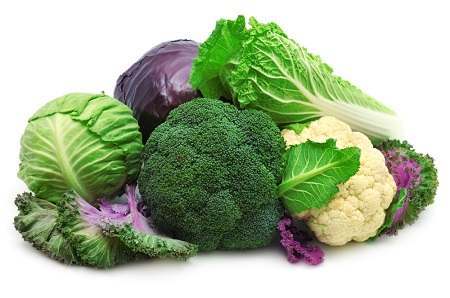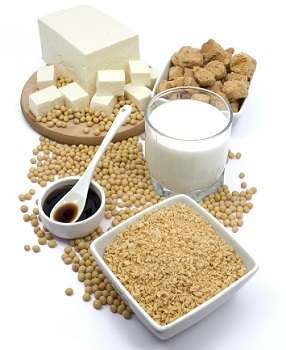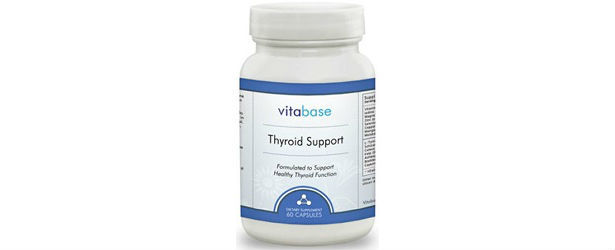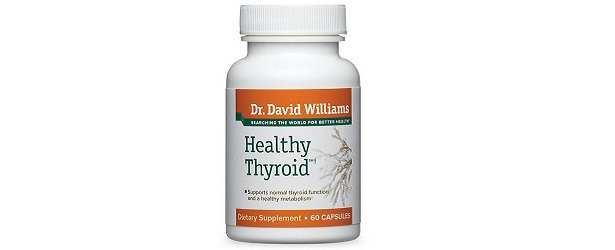
Which Foods Cause Goiters?
The thyroid gland is a butterfly like organ which is present in front of our neck, just below the Adam’s apple. It is also known as ‘the master gland’ of our body because it controls and regulates the other glands. Enlargement of this gland is known as a goiter. Research has shown that this increase in size is basically a counter-regulatory phenomenon which occurs when the thyroid hormone production in our body is not adequate. Goitrogens are food items which influence the output of thyroid hormones and worsen the goiter. If eaten in excess, these goitrogens can interfere with the healthy function of our thyroid gland. Therefore, goitrogens should not be used by someone who has a goiter.
Cruciferous Vegetables
 Cruciferous veggies are rich in sulfur containing compounds such as glucosinolates. Byproducts of these compounds, known as isothiocyanates, are produced when glucosinolates are broken down. According to an elaborate research these byproducts, isothiocyanates, can block the uptake and absorption of iodine by our thyroid gland, thus leading to the formation of a goiter. Goiter is essentially caused by the deficiency of iodine and consumption of cruciferous vegetables produces a relative lack of iodine by hindering effects of iodine on the functions of thyroid. Some examples of such vegetables are Brussels sprout, turnips, broccoli, cabbage, bok choy, collards, cauliflower, turnips, kohlrabi, rutabaga, kale and mustard. These vegetables have more goitrogenic potential when eaten raw and as a whole.
Cruciferous veggies are rich in sulfur containing compounds such as glucosinolates. Byproducts of these compounds, known as isothiocyanates, are produced when glucosinolates are broken down. According to an elaborate research these byproducts, isothiocyanates, can block the uptake and absorption of iodine by our thyroid gland, thus leading to the formation of a goiter. Goiter is essentially caused by the deficiency of iodine and consumption of cruciferous vegetables produces a relative lack of iodine by hindering effects of iodine on the functions of thyroid. Some examples of such vegetables are Brussels sprout, turnips, broccoli, cabbage, bok choy, collards, cauliflower, turnips, kohlrabi, rutabaga, kale and mustard. These vegetables have more goitrogenic potential when eaten raw and as a whole.
If you have a goiter and still want to eat these vegetables then the best way is to either boil them well or shred them finely. Research has shown that shredding the cruciferous vegetables can decrease the amount of isothiocyanate up to seventy-five % in them while boiling can decrease it up to ninety-five % of the original quantity.
 Soy Products
Soy Products
Anyone who is suffering from an enlarged goiter or deficiency of iodine must avoid food items containing soy and soybeans. According to a scientific report, soy has destructive effects on the thyroid gland and these effects are aggravated by an already existing lack of iodine in the body. Food items which contain soy in them are tofu, soy bar, soy beans, soy milk and any product which has ‘soy’ in its ingredients such as salad dressings and mayonnaise etc.
More Goitrogenic Foods
In addition to soy products and cruciferous vegetables, food items like strawberries, peanuts, millets, spinach, peaches, bamboo shoots, sweet potatoes, pine nuts, pears and radishes etc. are also labelled as goitrogenic foods. These food products are only mildly goitrogenic. They contain abundant amount of ‘flavonoids’ which have many health benefits. But according to a recent research, some flavonoids can also suppress the output of thyroid hormones thus interfering with the thyroid function.
In a nutshell, the above mentioned food items must be avoided by someone who has a goiter. A number of health care practitioners seem to have the opinion that those who do not have an existing thyroid problem would stay alright even after consuming goitrogenic foods as long as their consumption is not very excessive.
TOP 5
THYROIDProducts |
|||||
| Thyraid | ThyroMend | Thyrene | SupraHealth | Blue Spring | |
|---|---|---|---|---|---|
| 1 | 2 | 3 | 4 | 5 | |
| Price (1 bottle) Price (6 bottles)best value |
$49.95 $139.80 |
$38.95 $233.70 |
$39.99 $159.96 |
$59.97 $323.84 |
$35.99 $194.35 |
| Overall Rating | 99.50% | 85.70% | 76.60% | 68% | 60.20% |
| Performance* |





|





|





|





|





|
| Speed of Results* | Extremely Fast | Good | Average | Average | Slow |
| Quality of Ingredients | Premium | Good | Good | Average | Average |
| Customer Satisfaction Evaluation | 99.20% | 84% | 74% | 68% | 60% |
| Safety Evaluation | Safe for Use | Safe for Use | Safe for Use | Safe for Use | Safe for Use |
| Customer Service Rating |





|





|





|





|





|
| Reorder Rate | Highest | Good | Good | Average | Average |
| Return Policy | Risk Free | Risk Free | Handling & Restocking Fee | Risk Free | Risk Free |
| Success Rate | 99.20% | 85% | 69.20% | 67.50% | 60% |

 Subscribe Now
Subscribe Now











